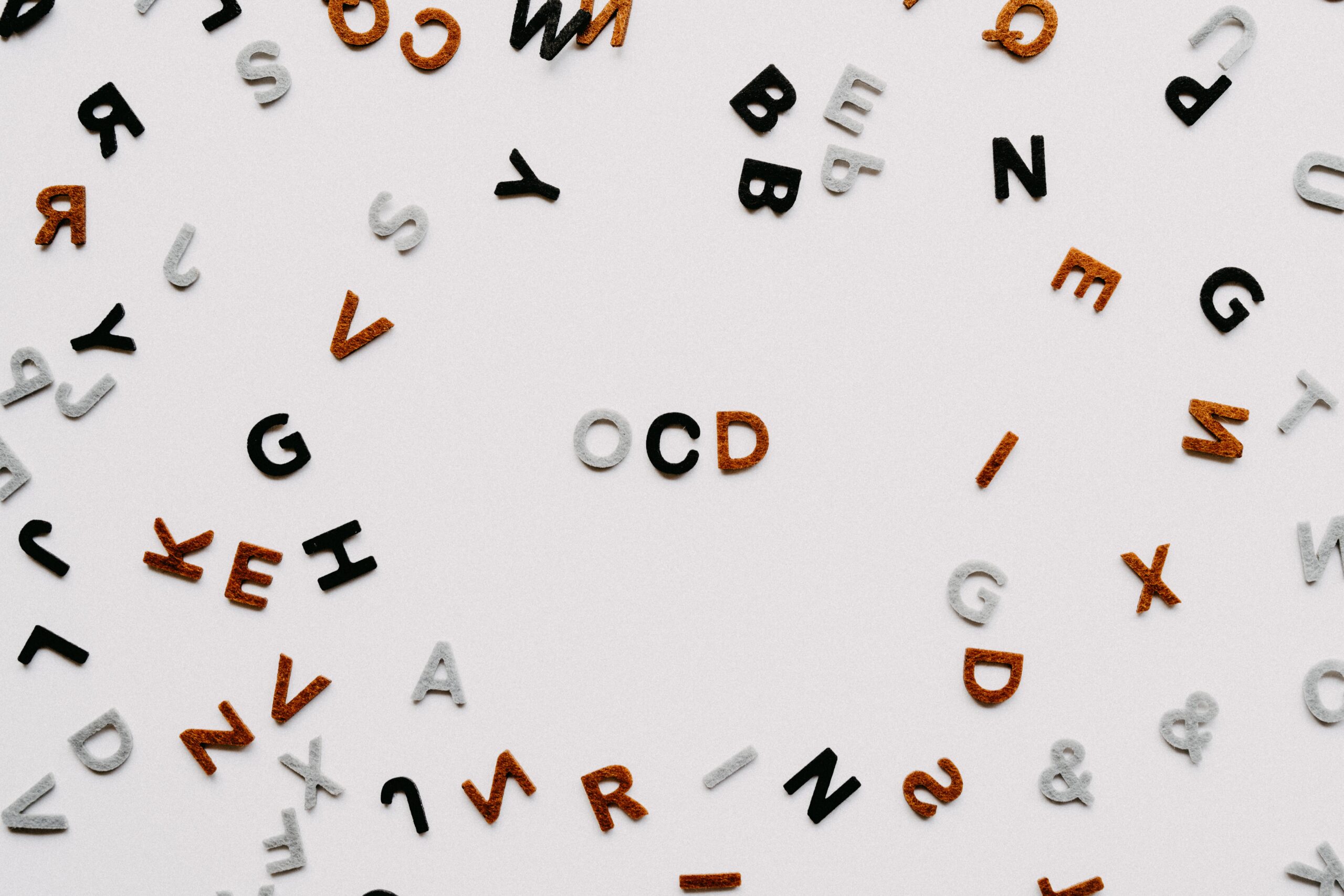
How often do we hear the phrase, “that’s my OCD”, or, “you’re so OCD”?
It is a common saying in day to day life, but a diagnosis of Obsessive Compulsive Disorder (OCD) is actually pretty rare, affecting approximately 1.2% of the UK population. It is currently estimated that there are around three quarters of a million people living with OCD in the UK.
In this article, we look at the signs and symptoms of Obsessive Compulsive Disorder, how it can be treated, and the support resources available.
A common misconception about Obsessive Compulsive Disorder is that it is simply a need to be clean and organised, to have your days meticulously planned out, or to have a dislike of germs.
This video from Ted-Ed outlines some of the most common myths about OCD:
In fact, Obsessive Compulsive Disorder (OCD) is a mental health condition characterised by obsessive thoughts and compulsive behaviours. Whilst some of these behaviours may present as constant hand washing or organising things in a certain way, there’s a lot more to it than simply liking to be organised.
Other examples of compulsive behaviours may include repeatedly checking that doors are locked, or electrical appliances are switched off after use, or repeating a specific word or phrase mentally or out loud.
These compulsive behaviours are repetitive activities that an individual will do to reduce the worries and anxieties that stem from obsessive thoughts. Obsessive thoughts can present as intrusive thoughts, doubts, unwanted urges, and irrational worries.
Individuals with OCD may experience obsessive thoughts or compulsive behaviours, however the majority of individuals with a diagnosis will experience both.
However, it is common for everyone to experience unwelcome thoughts from time to time, so how do we differentiate between general unwanted thoughts and OCD?
You may have OCD if you experience any unwanted thoughts consistently and overwhelmingly, to the point where they override all other thoughts.
Similarly, compulsive behaviours are usually irrational, excessive, and can be time consuming. For example, an individual with OCD may feel the need to repeatedly perform an action to calm an obsessive thought.
Repetitive behaviours, irrational worries, and anxiety are all signs to look out for in yourself and others that could indicate OCD. It may be easier to recognise the signs and symptoms within yourself than to spot them in a loved one, however if you are concerned about a friend or family member, keeping the dialogue open and letting them know you are there for them can encourage them to share their thoughts and feelings and have an honest conversation.
A diagnosis of OCD is a positive first step to accessing the treatment and support available that can help manage unwanted thoughts and behaviours and reduce the impact of these on daily life.
If you or a loved one are diagnosed with Obsessive Compulsive Disorder, it is important to seek help to manage any symptoms, especially if they are significantly impacting day-to-day life.
There are two main treatment options for OCD, psychological therapy and medicine.
The most common psychological therapy used to treat Obsessive Compulsive Disorder is a combination of Cognitive Behavioural Therapy (CBT) and Exposure and Response Prevention (ERP).
These therapies involve facing your obsessive thoughts head on and encourage you to work through them without engaging in compulsive behaviours. It can be daunting and scary at first, however over time the worries and anxieties attached to these thoughts should improve or even completely disappear.
A short course of psychological therapy lasting around 3 months will usually be offered for milder OCD. Your GP can refer you or, alternatively, if you live in England and are over 18, you can also self-refer for talking therapies through the NHS IAPT service.
Read more about psychological therapy treatment here.
The main medicine prescribed for OCD is a type of antidepressant known as a selective serotonin reuptake inhibitor (SSRI). SSRIs increase the levels of serotonin in our brains, and this can help improve symptoms of OCD.
Medicine may be offered for mild OCD if talking therapies do not help, or for severe OCD in conjunction with a longer course of psychological therapy. Not all therapies work for all people so speak to a health care professional to find the best treatment for you.
There are lots of further resources available for advice and support, from information sheets, and coping strategies, to community groups both online and in person.
OCD UK, a charity run by people with OCD for people with OCD, has a website packed full of information, advice, facts and figures, and information on the different types of support available. OCD UK also recently launched a series of online webinars, which provide the opportunity to hear from experts on a range of topics.
OCD Action provide information and support for individuals with an OCD diagnosis, and for their friends and families. Resources include online forums, local support groups, and a helpline (calls are charged at the same rate as a normal landline). Call 0300 636 5478, Monday – Friday, 9.30am – 8pm.
At Northern Healthcare we support individuals with mental health diagnoses, and some of our residents have a secondary diagnosis of Obsessive Compulsive Disorder. We work with each of our residents and their care teams to tailor our support to meet the needs of every individual within our services.
Read more about our support model here.
Photo by Annie Spratt on Unsplash.